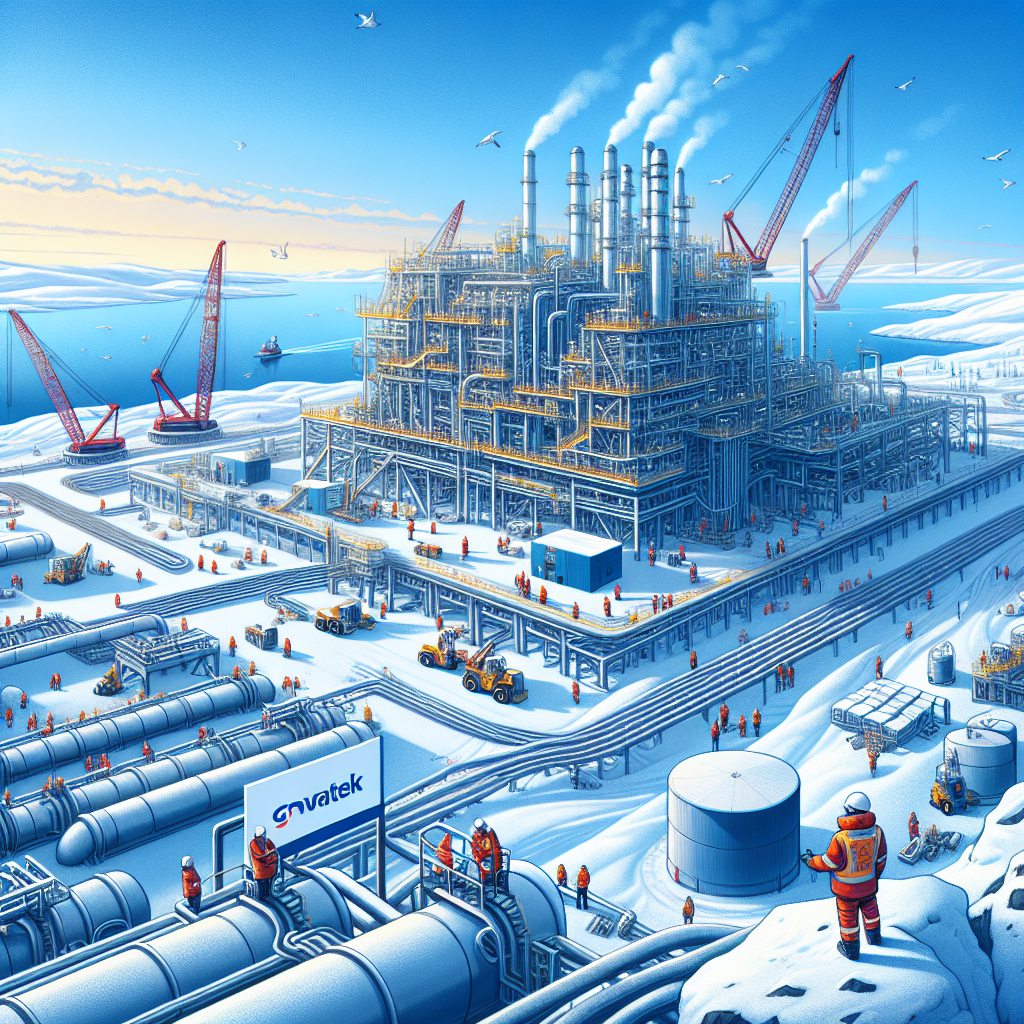A Russian gas producer, Novatek PJSC, appears to be progressing with an expansion project at its Arctic LNG 2 plant, despite facing Western energy sanctions. Ship-tracking data indicates that a small fleet of tug vessels has been towing a second production train to the plant site. This platform departed from the construction site near Murmansk on July 25 and took a three-week journey across the eastern Arctic to reach the production area where the first train is already in operation.
Arctic LNG 2 plays a significant role in Russia’s efforts to expand in the liquefied natural gas market, which could help offset lower piped-gas flows following the country’s invasion of Ukraine. The US imposed sanctions on the facility last year, aiming to disrupt the energy revenues sustaining the Russian government’s actions.
Despite the restrictions on ice-class tankers required for LNG exports, recent satellite images suggest that two vessels have left the plant, indicating that Russia may have found a way to bypass the sanctions using alternative means.
The second production platform closely resembles the first one in size, with a length of approximately 330 meters and a width of around 150 meters. While the timeline for the new unit’s output commencement remains uncertain, the first train took over four months to become operational after arriving at the production site on the Gydan peninsula a year ago. If the schedule is similar, LNG production from the new facility could commence in December, aligning with Novatek’s aim for a 2024 launch.
It is projected that exports from the new unit may not begin until the following summer, as warmer weather conditions would eliminate the need for ice-class tankers. Kpler Ltd anticipates that the second production train may not start lifting cargoes until summer 2025, when conventional vessels can be utilized for loading along the Northern Sea Route.
Novatek has not provided immediate comments on these developments. While Arctic LNG 2 was initially intended to have three production units with a combined capacity of 19.8 million tons per year, the sanctions have effectively placed the third unit on hold, as indicated by TotalEnergies SE, a minority stakeholder in the project.


